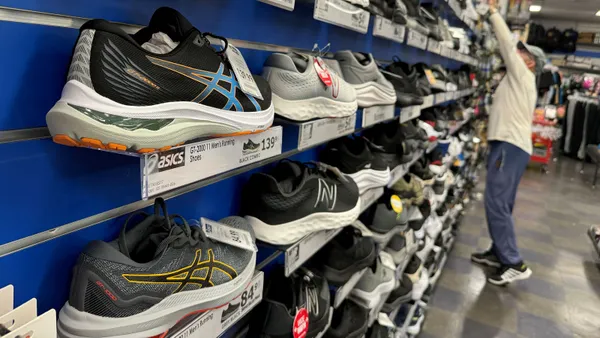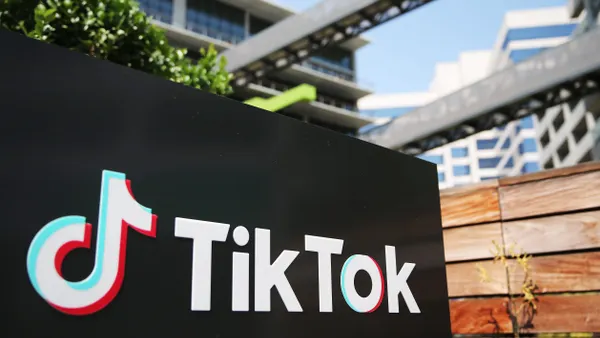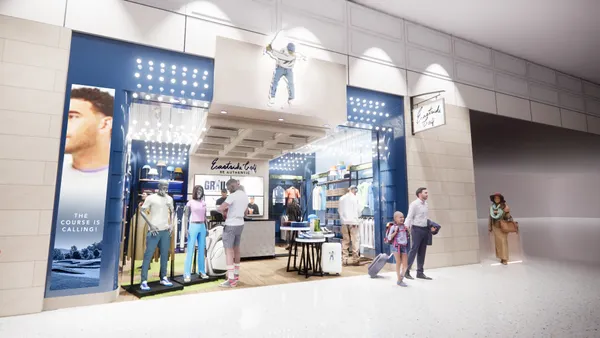Dive Brief:
-
Simon Property Group has launched "The Edit" at the Roosevelt Field mall on Long Island, which the developer describes as "a first of its kind, scalable, turnkey retail platform."
-
Designed by O'Neil Langan Architects, The Edit features a rotating selection of diverse new brands, including some that have sold only online. Among them are Raden Smart Luggage, millennial-focused Skinnydip London, menswear brand Vitaly, athletic apparel favorite Rhone, beauty brand Winky Lux, Beltology, dessert darling JARS by Dani and the contemporary art gallery Uprise Art, according to a company press release.
-
The effort recalls "In Real Life," launched by GGP in partnership with retail pop-up architecture company The Lionesque Group at GGP’s Chicago-based Water Tower Place. The project is essentially a store that allows e-commerce retailers to serve mall customers.
Dive Insight:
Major shifts in retail and a series of high-profile retail bankruptcies are contributing to a generally downbeat buzz about shopping malls.
Mall vacancy rates in the third quarter rose 0.2% to 8.3%, and mall rents rose just 0.2% in the quarter as most owners kept rents flat, according to a report emailed to Retail Dive last month. Mall vacancy increased in 34 of 77 U.S. metro areas.
But those numbers belie the reality that many shopping centers are thriving, including top malls like Roosevelt Field and Water Tower Place. Many are increasingly looking to diversify their portfolios as longstanding anchors like Macy’s, J.C. Penney and Sears close stores and leave gaping holes at their properties.
Those closures are exacerbated by specialty retailers like The Limited, Wet Seal, Payless, Rue21, Bebe and Payless reducing their footprints or shuttering altogether. Some property executives see opportunity in those empty spaces, but many have taken pay cuts in the interim as their holdings falter.
In addition to adding non-retail businesses to their malls, property owners are also spiffing them up with technology like chatbots, in the hopes of bringing in customers. That makes sense, as these days customers are on their phones for shopping — even when they buy from physical stores.
Zachary Beloff, Simon's national director of business development, described in a statement the Roosevelt Field project as "a completely transitional place to discover new product and technology in a brick-and-mortar space."
It helps the e-retailers, too, which stand to benefit from interacting with customers in real life, especially at Simon's relatively strong centers. "We are a brand that wants to reach new customers where they are already predisposed to shopping," Josh Udashkin, CEO of Raden Smart Luggage, said in a statement. "Simon has malls with lots of traffic. We believe the mall is an under-penetrated market for new brands that should be taken advantage of."
Traditional retail in malls is in need of attention, too. Earlier this year Simon Property Group CEO David Simon urged retailers to invest in their stores, insisting that e-commerce isn’t the sole reason for their plight. "I'm hopeful that they're going to reinvest in their stores, improve their inventory mix and service their customer better," he said. "And, by the way, we've got to have the same pressure on us to do that. So, it's a two-way street."












